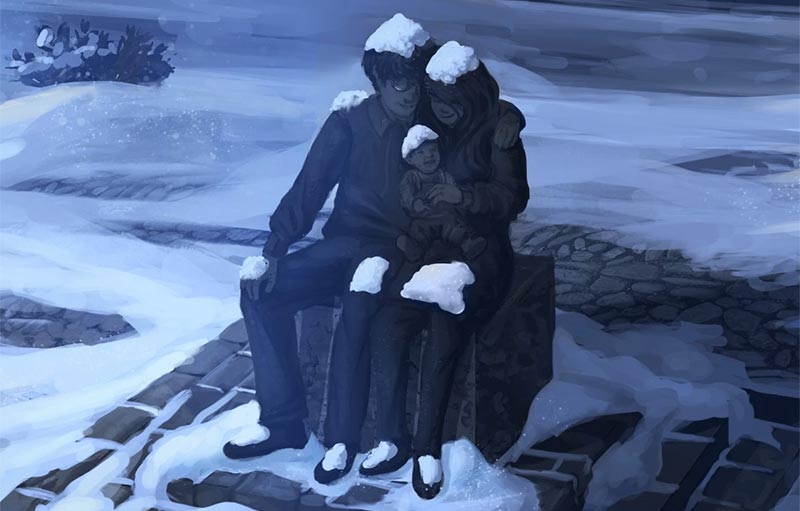The Harry Potter franchise has been among us since the publication of Harry Potter and the Philosopher’s Stone in 1997. However, J.K. Rowling waited until 2015 to write about the ancestors of the wizard boy (PMPFAM on RowlingIndex). It is there where we met Linfred of Stinchcombe, an eccentric potioneer who brewed his potions in order to aid local muggles. In this text it is explained the origin and meaning of the ‘Potter’ surname, which refers to Linfred pottering about his garden to obtain his potion ingredients.

A lot of fans of the Wizarding World have misunderstood the meaning of this surname, in relation to the in-universe data provided so far. They believe that Harry’s surname means literary potter, as someone who works with clay. This comes from the origin of the word ‘Potter’, that can be split into ‘pot’ and the inflectional morpheme ‘-er’, which is used to turn the grammatical category of a word into a common noun. E.g., the word ‘drive’, which is a verb, can be turned into a noun with this inflection, becoming ‘driver’ (someone who drives a vehicle.) Nonetheless, this morphological analysis has led many fans to think Harry’s ancestors were people who used to work with clay.
In medieval times, people began using surnames to distinguish one from the others. These surnames had to mean something specific in relation to people’s job, location or someone’s relative. Linfred’s job was potioneer, so it would not have made sense if he had been known as The Potter by people. As mentioned at the beginning, Linfred used to ‘potter about’ in his garden.
The verb ‘to potter (about)’ means ‘to do things or move without hurrying, especially when you are doing something that you enjoy and that is not important.’ His Muggle neighbours, since they did not know Linfred was a wizard, believed he was a charitable old man whose free time was spent in his garden. This ‘hobby’ awarded him his alias ‘The Potterer.’ This name, as we can see, carries in it the morpheme ‘-er’, which turns the verb ‘potter’ into a noun.
Having mentioned this, there is another point to discuss: the ‘-er’ ending, which is called ‘Inflectional suffix’ in linguistics. These suffixes, as aforementioned, change the grammatical category of a word, closing that category without the possibility of adding any other morpheme to the word (win [verb] – winner [noun] – winnerer [error].) This is why it would be a mistake to consider Linfred as a ‘potter’, because that word already has the inflection ‘-er,’ and the addition of an extra inflectional suffix (Potterer) would be considered ungrammatical in the English language. It would have been necessary to have another word whose root already carries the ‘-er’ ending naturally without being a noun.
In time, the alias ‘The Potterer’ was clipped into Potter:
In the Muggle world ‘Potter’ is an occupational surname, meaning a man who creates pottery. The wizarding family of Potters descends from the twelfth-century wizard Linfred of Stinchcombe, a locally well-beloved and eccentric man, whose nickname, ‘the Potterer’, became corrupted in time to ‘Potter’. – The Potter Family by J.K. Rowling
This process is highly common in any living language. In English there are several words which suffered from this: ‘influenza’ ~ ‘flu,’ ‘fanatic’ ~ ‘fan,’ ‘information’ ~ ‘info.’
